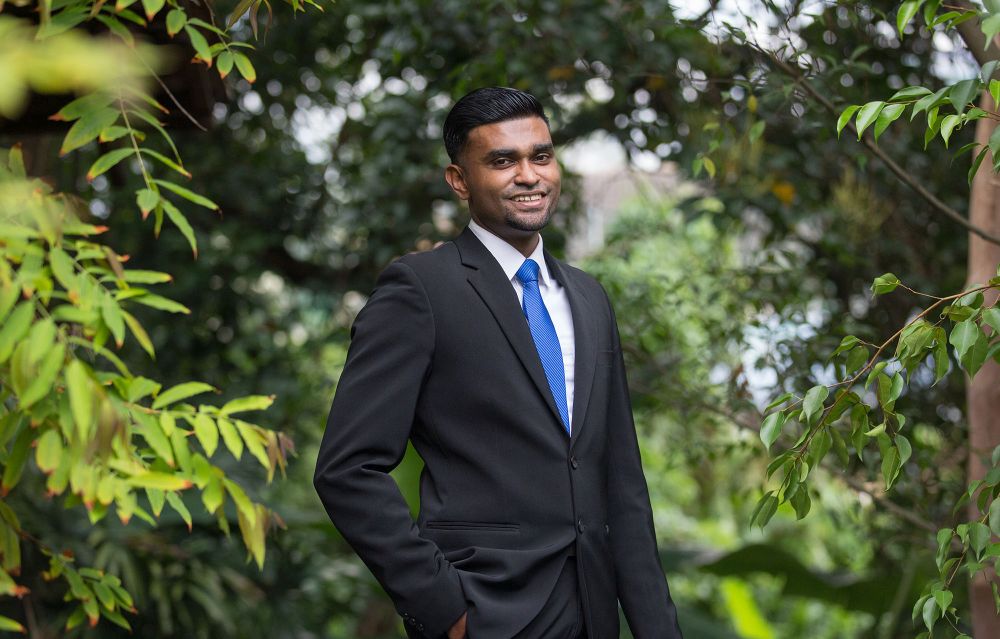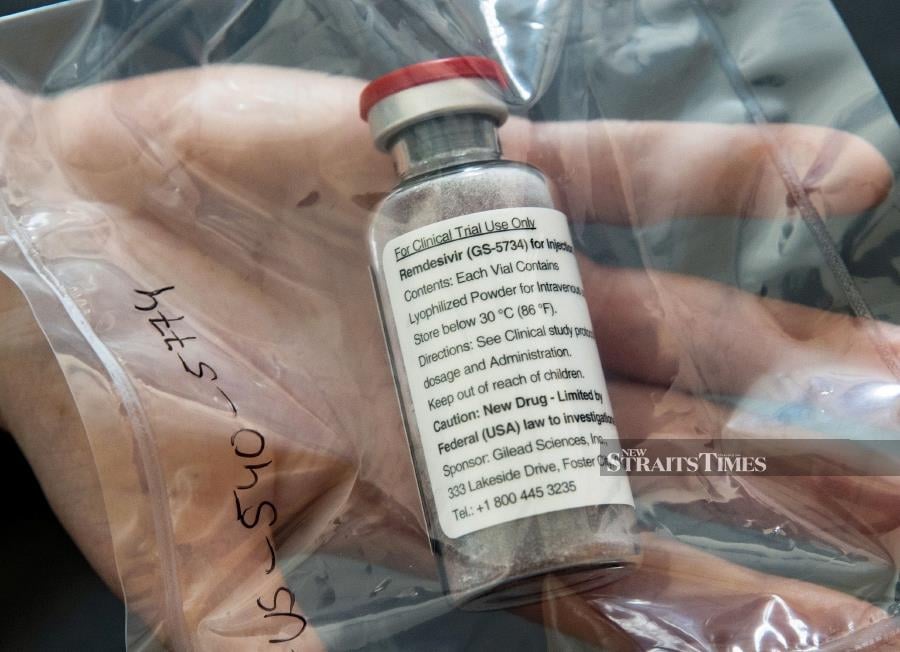Malaysian among top 10 finalists for Global Teacher Prize 2020
PETALING JAYA: Malaysian Samuel Isaiah’s dedication to nurturing Orang Asli children has put him among 10 finalists for the prestigious Varkey Foundation Global Teacher Prize 2020.
The teacher from SK Runchang, Pahang, made the top 10 list from a selection of over 12,000 nominations and applications from more than 140 countries, the London-based Varkey Foundation said yesterday.
Isaiah, 33, who teaches English, said the honour represents Malaysian teachers’ capabilities and struggles, and highlights the Orang Asli community.
“It’s high time we spoke about indigenous people’s potential.
“With the right policies, resources, intervention, pedagogy and environment, they can achieve amazing things.
“Putting my children in the international spotlight is one of the best things this award can do for me,” he said in an interview with The Star.
If he wins the US$ 1mil (RM4.3mil) prize given by the foundation in partnership with Unesco, Isaiah wants to build an educational hub that caters to Orang Asli education, social welfare and well-being.
The challenges the community faces in accessing education, he said, are interconnected.
“Matters such as malnutrition and poverty affect their performance in school as well.
“The hub will work with one Orang Asli community at a time and they will be central in the decision-making process. We need to listen to their voices.
“It will also require collaboration with non-governmental organisations, the Education Ministry and people from various expertise.”
The Covid-19 pandemic has made things worse for indigenous communities, said Isaiah, adding that digital literacy and online education does not work well for Orang Asli schoolchildren due to poverty and the lack of infrastructure.
“Efforts by schools have been commendable but there is a limit to what they can do.
“The hub will address all these problems,” he added.
Every year, the Global Teacher Prize recognises an exceptional teacher who has made an outstanding contribution to the profession and underlines the important role teachers play in society.
In a video message announcing Isaiah’s nomination, British actor and comedian Stephen Fry said the teacher provided laptops and tablets for his students through a national crowdfunding campaign.
“You dedicate yourself to inspiring your pupils to dream big and to connect to the outside world.
“This has resulted in your school’s average pass rate in English increasing from 30% to between 80% and 85%.
“Congratulations, Samuel, and thank you for everything you do,” Fry said.
Unesco (education) assistant director- general Stefania Giannini hopes Isaiah’s story will inspire aspiring teachers and highlight the work of Malaysian teachers and educators throughout the world.
“The Global Teacher Prize helps put the teacher’s voice at the heart of our mission to champion inclusive learning opportunities for children and young people all over the world, especially the most marginalised and disadvantaged, during this sudden and unprecedented disruption to global education,” Giannini said.
Varkey Foundation and the Global Teacher Prize founder Sunny Varkey said this year has seen teachers go above and beyond to keep young people learning, adding that teachers should be applauded for their creativity, compassion and resolve to fulfil every child’s right to a good education.
The award ceremony will be held virtually on Dec 3 and hosted by Fry from the Natural History Museum in London.
Samuel is a Fulbright scholar pursuing a Master’s degree in Educational Policy and Leadership in State University of New York.
Last year, he was recognised as one of the 10 winners of the Star Golden Hearts Award 2019 – an annual award that celebrates everyday Malaysian unsung heroes – for his work with the Orang Asli children.
Another Malaysian teacher, Norhailmi Abdul Mutalib, was also among the 50 educators shortlisted for the 2020 prize.
http://mystar.newspaperdirect.com/epaper/viewer.aspx
https://www.thestar.com.my/news/nation/2020/10/28/malaysian-among-top-10-finalists-for-global-teacher-prize-2020
Malaysian teacher humbled, surprised to be among
Top 10 finalists for Global Teacher Prize 2020

KUALA LUMPUR, Oct 28 — Teacher Samuel Isaiah was surprised to be the eighth educator to join Top 10 finalists of the Global Teacher Prize 2020 as he was initially reluctant to join the competition.
It was only after two of his mentors persuaded and encouraged him to do so that he decided to take on the challenging task of convincing the panel that not only was he worthy, but also to provide exposure for the work he was doing.
“Dr Mariah Ibrahim, my former lecturer from University Utara Malaysia and Datin Rosliza Rosli, who worked in the Ministry of Education inspired and encouraged me to apply for this award,” Samuel said when contacted by Malay Mail.
“Initially I didn’t want to apply as I did not want to be glorified as a teacher and I want the focus to be on the kids but after some convincing I decided to do so and to be honest I am very surprised and humbled by it.
“Both of them said don’t do it for myself, do it for the kids. Bring some exposure and let the world know about these kids and the Orang Asli’s plight,” he recalled.
Thus began the arduous task of writing 10 essays — 700 words each — in two days, knowing full well the other applicants would be sending in videos.
“It was not an easy process as I applied at the last minute and had to write those essays but at that point I was determined to do it.”
Samuel shot to fame when tweets on how 100 Orang Asli students travelled 200km to attend his wedding in 2017 made the news.
Samuel has regularly gone to great lengths to educate the Orang Asli children, many of whom live in remote areas.
Samuel, who taught at Sekolah Kebangsaan Runchang school, Muadzam Shah, Pahang, incorporated the use of technology, started a successful national crowdfunding campaign to renovate the physical condition of his school classroom and implemented an e-mail exchange project called ‘Asli E-Pal’, where they communicate in English with adult volunteers all over Malaysia and overseas.
He also used music as an education piece.
Samuel is back in Pahang now with the school and his beloved kids. He returned to Malaysia in July from New York where he was pursuing his Master of Science in Educational Policy & Leadership at the State University of New York at Albany, New York due to the Covid-19 pandemic.
He said his students were thrilled to see him and they have been enjoying each other's company while he is back here, which could be till January 2021.
“There was some separation anxiety in the beginning. I’d get calls from the students all the time and we would send videos to each other just to see how we we’re doing,” said Samuel who at the time of calling said the kids have not found out about his nomination.
The winner of the Global Teacher Prize will get US$1 million (RM4.16 million) over a span of 10 years.
Samuel said he plans to use the money to form a foundation to help the Orang Asli as well as highlight their plight so they can be given the help they need.
He wants to convince the public that they are not incapable like most people think and want to dissociate the narrative that Orang Asli are just poor, illiterate and not capable of being productive members of society.
“I’d like to start with my community first and eradicate poverty, build better infrastructure, help with social and health problems and overall, give them a better quality of life.
“To do that I need the help of the education ministry and the local NGOs,” he added.
Teachers from Malaysia have excelled at the Global Teacher Prize since it was first awarded in 2015.
Dr Muhamad Khairul Anuar bin Hussin, a special needs teacher at Taman Universiti 2 Secondary School, Johor Bahru, reached the top 50 shortlist for this year’s prize.
KA Razhiyah, a special needs education teacher at Smk Panji School, Kota Bharu, was shortlisted for the 2018 prize, having been selected from over 30,000 nominations and applications from 173 countries around the world.
Mohd Sirhajwan Idek, a teacher at Keningau Vocational College, reached the top 50 shortlist for the 2017 prize.
The Global Teacher Prize virtual ceremony is expected to take place on December 3 where the overall winner will be announced.
It will be hosted by English comedian, actor, writer and presenter Stephen Fry from the Natural History Museum in London.
https://www.malaymail.com/news/malaysia/2020/10/28/malaysian-teacher-humbled-surprised-to-be-among-top-10-finalists-for-global/1917077




